Bitcoin Security Tips For Beginners
You bought your coins and now you want to keep them as safe as possible. Read our Top 10 Bitcoin security tips to find out how. Store Private Keys Offline It should go without saying that your private key is absolutely private and should not...
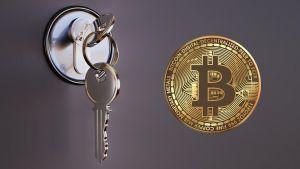
You bought, got paid, or simply received bitcoins and now you want to keep them as safe as possible. Here are our top ten Bitcoin security tips to follow.
1. Store Private Keys Offline
It should go without saying that your private key is your absolute crypto lifeline and should not be known to anyone you deem untrustworthy. To keep them safe, you can store them on a Bitcoin cold storage, such as a computer with no internet connection. It will help you to not fall prey to malware or hacker attacks. Also, private keys can be safely stored on a piece of paper or special hardware (also a cold wallet), similar to a USB key.
2. Use Dedicated Hardware
You can make use of a dedicated USB key in moving data from your online computer to your offline computer. This is to minimize its exposure to potential viruses or hackers. Some people even take a step further and dedicate an entire offline computer to use as an offline wallet.
3. Make Use of Hardware Wallet
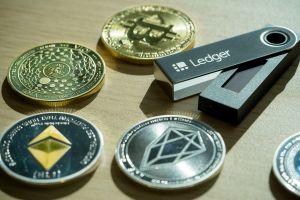
You may already know this, but using a hardware wallet is perhaps the safest way to store your Bitcoin. This wallet effectively makes use of an encrypted USB key that comes with an onboard computer running in its own special operating system dedicated to operating a Bitcoin wallet.
The most popular Bitcoin hardware wallets are:
4. Secure Your PC
Always be aware of whether your antivirus software is up to date, as well as your other security options. It only takes just one security vulnerability to have your computer hacked - you must remain vigilant at all times, avoid malicious websites, and learn as much as about cybersecurity as you can.
5. Use Linux
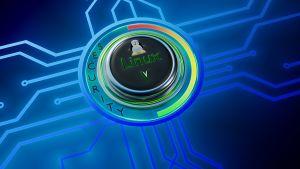
It may sound like what hackers in a bad movie would say, but it is true: using the Linux operating system is a secure choice. Linux has the best record of resisting any USB based attacks so if you can, use it for transferring Bitcoin-related transactions from online to offline computers.
6. Make Backups
There’s a saying that goes, “don’t put all your eggs in one basket.” It applies to keeping your Bitcoin safe and sound, too. Kept in a secure place, a backup of your cryptocurrency wallet may save you from hardware failures, unforeseen accidents, and human errors. It will also allow you to restore your wallet in case your PC or phone gets stolen.
7. Protect Your Identity
Violent attacks on bitcoin holders at gunpoint are increasing, so you would be smart to keep low-profile on your investment activities and holdings. In one of the recent cases, a 38-year-old Dutchman was tortured with a drill in an attempt to steal his crypto holdings. Therefore, privacy and anonymity are good not only for your crypto holdings but for your safety and wellbeing, too.
Do not divulge any personal details which can be used to access your personal information - PINs, phone numbers, email addresses, passwords, etc. Not even your mother’s maiden name or the name of your first pet, as these are common backup questions. Avoid suspicious transactions that involve the exchange of personal details - if you do not have a good feeling about a deal, do not be afraid to pull the plug.
8. Use an Escrow Service
When you need to buy or sell something and you aren’t sure who is on the other side, you can use an “escrow service.”
In these cases, the person who needs to make the payment sends their Bitcoins to the escrow service while they wait to receive the item they are buying. Meanwhile, the seller knows their money is safe with the escrow service and sends the agreed item. When the buyer receives the merchandise, they notify the escrow service to finalize the payment. That way, both the buyer and seller remain safe.
9. Use Two Factor Authentication (2FA)
An additional layer of security is necessary for crypto security. Although it may be tiring to go through the authentication process all the time, it is way better off than losing your coins.
2FA includes a second layer of protection wherein after entering passwords or transaction details the system sends in a verification code on your trusted device so it becomes too difficult for hackers to intervene and steal your funds.
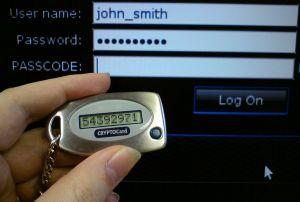
10. Use MultiSig
This is an additional step created mainly for corporate users, but anyone can use it. To complete the transaction, several people need to sign to allow it (which created the name multiple signature, i.e. MultiSig) and the potential for misuse of funds is minimized.
Here are several wallets with MultiSig support:
- Armory
- Electrum
- Coinbase
- GreenAddress
- Xapo
________
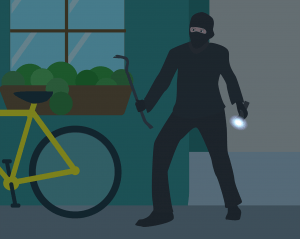
Here are four bonus tips on how to keep your bitcoin (or any other cryptocurrency) holdings secure:
1. Keep your mouth closed about your digital wealth. That means no bragging about how much you have made on your last trade on crypto trading Facebook groups (at least not under your real name), no telling people in bars after a few drinks that you bought bitcoin “years ago”, and no pictures of your bitcoin wallet to show off your wealth. There are zero benefits to bragging about your crypto holdings, only drawbacks.
Otherwise, you may risk potential violent attempts to steal your wealth and ruin your health, or even life.
2. You should not post any of your wallet addresses online. When you do so, criminals can see how much cryptocurrency you own and make you a target. Should you need to post a wallet address online for whatever reason, make sure not to keep a lot of wealth in it and only use it for the sole purpose only (such as collecting donation or receiving small payments).
3. Remember that transactions from your wallets into other wallets of yours can be viewed publicly (on most blockchains). Hence, if you are moving large amounts from wallets linked to your name, you may want to consider using an anonymous cryptocurrency or a coin mixer to make the transactions impossible to trace for criminals. Ideally, however, you do not want to be posting any wallet addresses publicly online (although that’s not always possible or convenient).
4. If you consider yourself a target, it may be wise to have a decoy wallet at hand that contains a comparatively small amount of your overall crypto wealth. That way, should it ever come to an armed robbery, you can use the funds in that wallet to send to the assailants in hopes that they will take that money and leave.
Continue learning more about crypto security by checking our article about why you shouldn’t keep your crypto funds on cryptocurrency exchanges.
